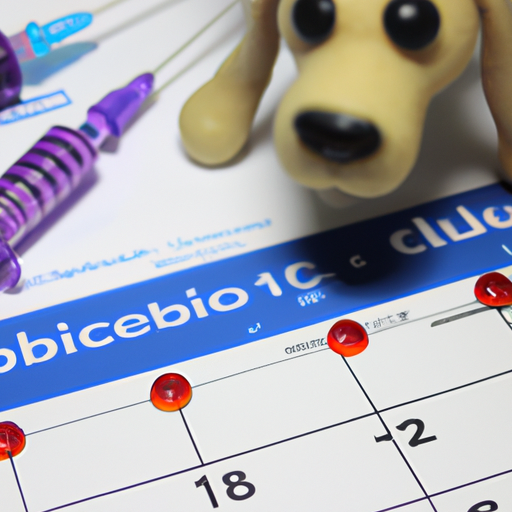As a compassionate caregiver to your furry friend, you’re likely aware that protecting them from illness is crucial. Just like humans, dogs can be susceptible to various types of diseases, one of which is Bordetella Bronchiseptica, commonly known as kennel cough. This highly infectious disease can pose a serious threat to your dog’s health, making Bordetella shots a necessary preventative measure.
But how often do dogs need Bordetella shots? Let’s delve into this topic in detail.
- Key Takeaways
- Bordetella shots are typically given to puppies at 6-8 weeks of age, followed by boosters every 6 to 12 months.
- The frequency of Bordetella shots can depend on your dog’s lifestyle, exposure risk, and overall health.
- Not every dog may need Bordetella shots; consult with your vet to make an informed decision.
Table of Contents
- Understanding Bordetella
- Bordetella Vaccination Schedule
- Factors Influencing Vaccination Frequency
- Not Every Dog Needs Bordetella Shots
- FAQ
Understanding Bordetella
Bordetella Bronchiseptica, or “kennel cough,” is a respiratory infection that can cause severe coughing, fever, and even pneumonia in dogs. It’s highly contagious and is often spread in places where dogs interact closely, such as kennels, dog parks, or grooming salons.
A Bordetella shot, or vaccination, is a preventative measure that can significantly reduce the risk of your dog contracting this disease. The vaccine is either injected or administered through the nose. For more information on Bordetella and its effects, check out this detailed overview from VCA Hospitals.
Bordetella Vaccination Schedule
Generally, Bordetella shots are first given when puppies are 6-8 weeks old, followed by a booster shot every 6 to 12 months. The initial vaccination often involves two doses, given 2-4 weeks apart. This schedule ensures that your dog maintains a strong immunity against Bordetella.
Here’s a basic Bordetella vaccination schedule for your reference:
| Age | Vaccination |
|---|---|
| 6-8 weeks | First Bordetella shot |
| 10-12 weeks | Second Bordetella shot (if needed) |
| Every 6-12 months | Booster shot |
Factors Influencing Vaccination Frequency
The frequency of Bordetella shots can vary depending on several factors:
- Lifestyle: Dogs that frequently interact with other dogs at parks, kennels, or daycare centers have a higher risk of exposure and may need more frequent vaccinations.
- Health: Older dogs or those with weakened immune systems may need more frequent boosters.
- Veterinarian’s advice: Always follow the vaccination schedule recommended by your vet, who understands your dog’s specific health needs and risks.
It’s essential to consult with your vet to ensure your dog’s vaccination schedule is tailored to their lifestyle and health. For more insights on dog health and vaccinations, visit OneTopDog.
Not Every Dog Needs Bordetella Shots
While Bordetella shots are crucial for many dogs, they may not be necessary for all. Dogs that rarely interact with other dogs or those that stay indoors most of the time may not need this vaccination.
However, it’s always best to discuss this with your vet, who can provide tailored advice based on your dog’s specific circumstances. For more information on different dog care practices, check out these articles on grooming and nutrition on OneTopDog and OneTopDog.
Frequently Asked Questions
1. What are the side effects of Bordetella shots?
Side effects are rare but can include mild fever, lethargy, or loss of appetite. If you notice any severe reactions, contact your vet immediately.
2. Can my dog still get kennel cough even after getting the shot?
Yes. No vaccine is 100% effective, and the Bordetella shot may not protect against all strains of kennel cough. However, vaccinated dogs often experience milder symptoms if they do get sick.
3. Can humans get kennel cough from dogs?
It’s extremely rare, but possible. People with weakened immune systems are at a higher risk.
In conclusion, understanding how often your dog needs Bordetella shots is a critical part of their health care. Regular vaccinations, along with other preventative measures, help ensure your dog stays healthy and happy. Always seek advice from your vet to make informed decisions about your pet’s health needs.



